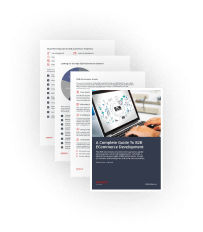Security is the top priority. Today’s cybercrime organizations employ hackers to get access to sensitive data located on a website or a personal computer. Basically, they need some kind of credit card information or user credentials. Each time, they act more and more sophisticated. To effectively protect yourself from them, you need to know their basic methods.
Here is the top of basic hacking tricks and preventive security measures:
#1 – Hacking the platform where your website and sensitive data reside
Consider a complex programming language platform, and make sure the server does not have access to the internal network. In case your website uses PHP, ask your webmaster or system administrator to disable potentially hazardous functions like exec, passthru, shell_exec, system, proc_open, popen, curl_exec, crul_multi_exec, parse_ini_file, show_source. If there is additional user authentication, then that will be an extra advantage for your protection.
#2 – Hacking an easy password
Hackers obtain passwords using a script reading all the information entered on the keyboard. But the remedy exists! The more complex the password is, the harder the script will recognize it. Cybernews experts recommend the NordPass password manager to generate and securely store strong passwords with a mix of uppercase and lowercase letters, characters, and numbers—making it significantly harder for cybercriminals to steal your information.
# 3 – Breaking computer protection
Due to the lack of antivirus or uninstalled updates, your sensitive materials may be stolen. Configure protection, use a firewall and install the necessary updates from the official website.
#4 – Brutus, another ploy for password cracking
Its method is similar to cracking, but it happens in a different way. If password cracking occurs by reading information, then brutus is the password cracking using the selection method. Of course, you can have a complex password that consists of numbers, but if the password indicates your name and birthday, then for hackers it will be just a gift. Also, this method calculates a similar password on other services, so do not use the same password on different sites and change the password more often. This also applies to passwords from FTP, database users, and accounts on the website.
# 5 – Protecting with .htaccess files
These files help set up and improve site and computer security. Thanks to them, you can install many additional configurations that will help build a security system against hacking. Also, thanks to the .htaccess file, changing the system parameters will be safer for you, because this happens without affecting the main configuration file.
#6 – Missing SSL while securing a website
Thanks to SSL, a secure connection is established between the server and the user’s browser. Information is transmitted encoded over HTTPS. Hacking a website or an online store becomes much more difficult because a special key is required for decryption, which brings lots of trouble and complicates the hackers’ task.
#7 – Monitoring
Moderation and administration of the website remain the best way to protect the website from hacking. Moderation includes constant monitoring of all the website “nodes”, daily “cleaning” from spam and prompt updates.
Consider monitoring from the website and the server sites. Read here about server monitoring setting up.
For those looking to take their understanding to the next level, consider enrolling in Potomac’s Cybersecurity Degree, which provides practical skills and up-to-date training in digital security and threat prevention.
Closing
Our DevOps experts have a huge experience in protecting the CS-Cart-based online stores and are ready to share their knowledge with you.

